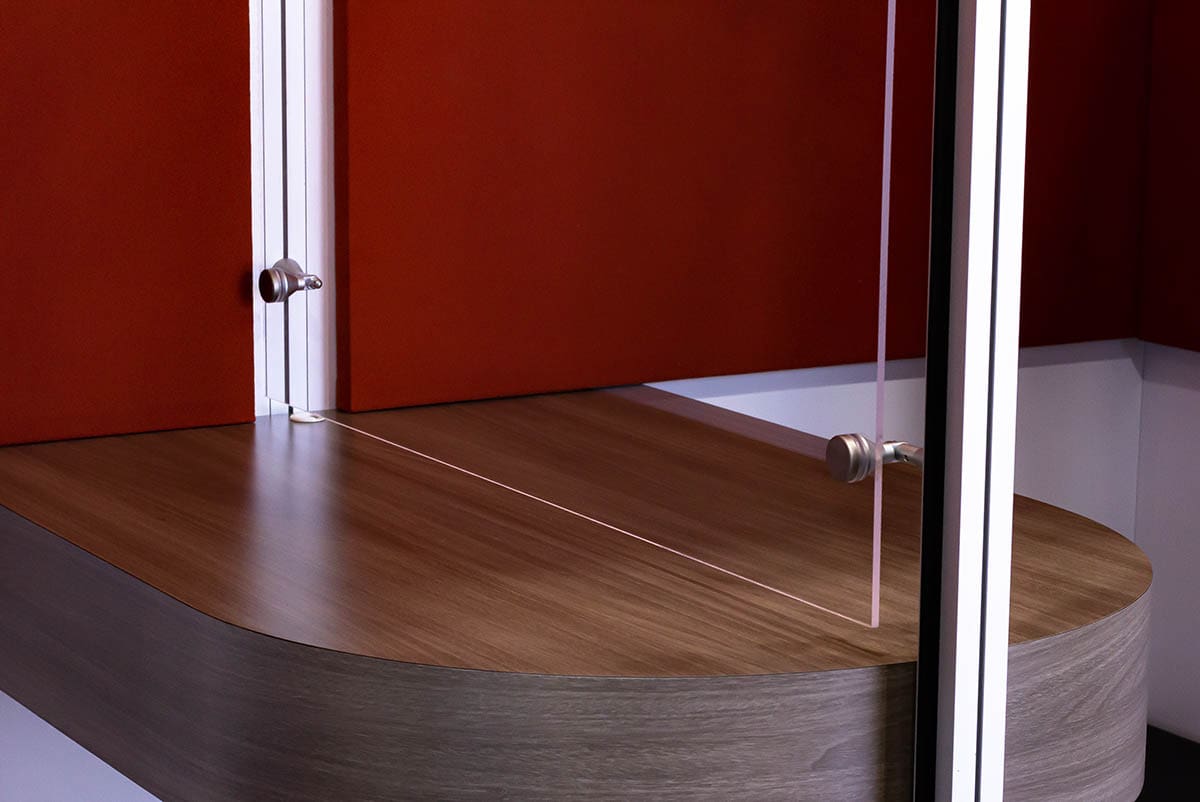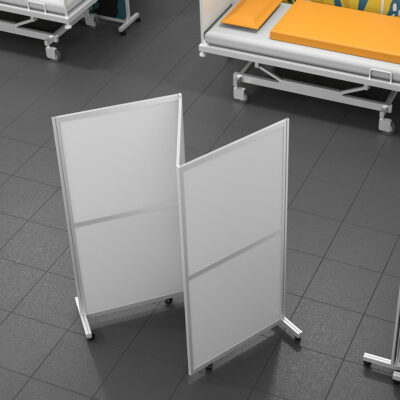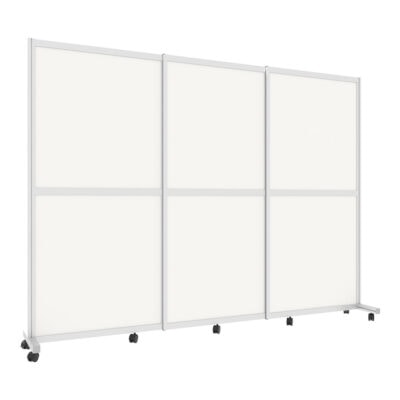Description
Cleaning, Disinfecting & Maintenance
Our premium acrylic Room Divider is the highest quality manufactured plastic sheet on the market. It provides tight thickness tolerance and high optical characteristics. It’s much tougher than glass, at half the weight.
Cleaning Your Acrylic Room Divider
Depending on the state of your acrylic sheet, you can wipe down or wash the material. To wipe down, apply enough water to lightly moisten a soft dust cloth and wipe evenly across the sheet. For heavier buildup removal, you can wash the material by using a small amount of intensive plastic cleaner, mild soap or detergent with lukewarm water and apply light pressure. Then, rinse with clean water and dry by blotting with a damp cloth or chamois.
Note: Dry or gritty cloths may cause surface scratches and create a static electric charge on the surface.
You can also use 3% Hydrogen Peroxide, Isopropyl Alcohol diluted to 30% strength or Lysol Brand with Hydrogen Peroxide Multi-Purpose Cleaner, Citrus Sparkle Zest to clean your acrylic sheet.
Grease, oil, or tar may be removed with a good grade of hexane, aliphatic naphtha, or kerosene. These solvents may be obtained at a paint or hardware store and should be used in accordance with manufacturer’s recommendations.
DO NOT USE: Window cleaning sprays, kitchen scouring compounds or solvents such as acetone, gasoline, benzene, alcohol, carbon tetrachloride, or lacquer thinner. These can scratch the sheet’s surface and/or weaken the sheet causing small surface cracks called “crazing.”
Disinfecting Cubicall Room Divider
Diluted bleach solution:
Prepare a bleach solution by mixing:
- 5 tablespoons (1/3rd cup) bleach per gallon of water
- or 4 teaspoons bleach per quart of water
Use a clean soft cloth (we recommend the disposable cleaning cloth – Wypall L40), applying only light pressure.
For an alternative cleaning method, use Clorox Healthcare® Bleach Germicidal Disinfectants or Optim 33 TB (EPA Registration Number 74559-3-83259).
Dusting
Dust with a soft, damp cloth or chamois. Dry or gritty cloths may cause surface scratches and create a static electric charge on the surface (see section below on neutralizing static electricity).
Polishing
Protect Room Divider and maintain its surface gloss by occasional polishing with a good plastic cleaner and polish. Apply a thin, even coat with a soft clean cloth and polish slightly with cotton flannel. Then wipe with a damp cloth to help eliminate electrostatic charges that can attract dust particles.
Scratches
Fine scratches can be removed by hand polishing. Apply a plastic scratch remover to a soft flannel pad and rub. When the scratches have disappeared, remove all residue and polish.
For deeper scratches, first sand lightly with a 400-grit “wet or dry” sandpaper, using plenty of water and rinsing the sandpaper frequently. Follow by buffing with a clean muslin wheel and a good polishing compound. For the highest gloss, use a clean-up wheel made of soft cotton or flannel sections and on which no compound is used. An electric drill with a buffing wheel is ideal.







